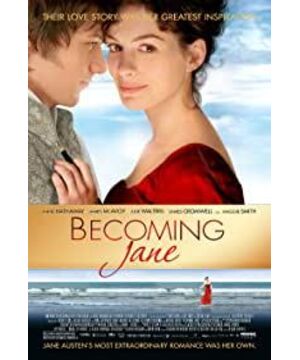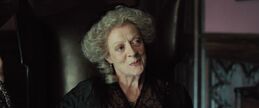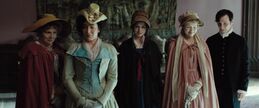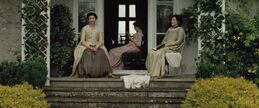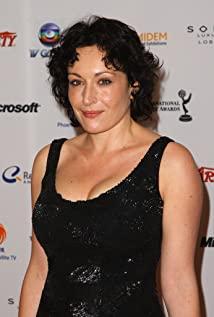In this way, she appeared in the prelude of the story, the old pen, the faint ink stain on the middle finger, and the sharp sound of the pen tip touching the paper. Inspiration strikes. She wanted to vent her passion on the piano, and her fingers jumped quickly, awakening the sleeping person. She is destined to have a different soul.
The camera cuts to the raucous city, where he moves smoothly between different women, throws punches in the ring, strikes, gets knocked down, and then gets back on his feet. Bizarre, ambiguity spread in the air, he seems to be such a playboy. But the next second, he flew into the classroom, and his uncle, the judge, once again severely criticized him for being late. He is a combination of contradictions, cynical. However, under the guidance of fate, whether inadvertently or intentionally, he came to that small rural village and met her.
The story begins like this.
She is a country girl with budding wisdom, confident and independent, and eager to one day achieve success with a pen.
He is a trainee lawyer from the city. He is rebellious and wanders all day long in sensual entertainment venues.
In the first encounter, at a family reunion, she recites a playful but lengthy speech carefully written for her sister's engagement. And he arrived late, broke into her world recklessly, and rudely interrupted her thoughts. His questioning of her writing annoyed her, and her vitriolic mockery annoyed him. In his eyes, she is a show-off and clever country girl who thinks she is ignorant. In her eyes, he was a philistine who was impolite and lacked education.
They met on the country road, advancing and retreating, their eyes wandering, and they were fighting each other. Those unconscious tit-for-tat, those deliberately mischievous greetings, those unconscious mutual attraction contained in irony. They are similar, equally informal, and equally talented. Even if they were relatively silent, there was a kind of affection that spread quietly. Against the backdrop of vegetation, those feelings are particularly moving, but also hurtful.
On the cricket pitch, his agility stings her eyes. She stepped onto the court with determination to prove to him that she could beat him in a sport that was not for women. In the end she succeeded. He fell, maybe it was her stubbornness and persistence that tripped him.
In the study, his chuckle angered her. He pointed out the lack of broad vision behind her talent, and she was too stubborn to stubbornly stay in place. She was dissatisfied, but she still took the book he recommended to her.
Their love sprouted little by little like this. But in that era, such love was not allowed, even, it was cursed.
The rich man proposed to her, which she did not want to accept, while her mother, troubled by poverty, begged her to agree. She hated, she resented, she was confident that her pen would keep her alive. It's just a word from my father, nothing can destroy a person's spirit more than poverty. Yes, poverty is the hurdle they cannot overcome.
At the dance, she searched for his figure everywhere, and he appeared unexpectedly with a mischievous smile. She understood. They were whispering, dating in the woods, kissing and hugging recklessly, and only at this moment could they temporarily surrender to the shackles of etiquette, and outside the woods, they returned to the turbidity of the world.
They sneaked out, went to London, and wanted to ask his uncle to agree to their marriage. She was careful to win his uncle's favor, and she wanted to stay by his side justifiably. Love may be beautiful here, but it backfires. The little priest who had a crush on her wrote a letter to tell her secret, and her uncle threatened him to separate from her, otherwise he would lose his financial support forever. He flinched, and she was heartbroken.
Soon the news of his engagement reached her ears. On that familiar country road, they met again. She hid her heartbreak with stubbornness, he sealed her sword-like accusation with a domineering kiss, and she softened in his arms, unarmed, and her thorny shell. Can't let go.
They decided to elope.
Everything seemed to be going so well until she peeked at his letter. She finally knew that he used seemingly extravagance to disguise his support to his relatives at home. Without his uncle's financial support, not only would he have nothing, but his family would also be left in poverty. She is such a smart woman, and she can't ruin the family's hopes because of her own happiness. In the cafe, she was so calm. Just said goodbye flatly and left quietly.
In such an era, this was a love destined to have no results, no blessings, only the cruelty of reality. No one wants to choose between money and love, but when the two cannot coexist, we will only suffer, whether short-term or long-term. Maybe this is life.
When she carried the box and stood at the head of the village again, the desperate and relieved pain ripped apart her heart silently. let go. let go forever. But why is it still so painful. The shaky love eroded by the material foundation is once again vented as a silent strum. The mother took her into her arms distressedly, at this moment there was no blame, only deep love remained in the emptiness.
A long time later, in the era when love would no longer be called deviant, she had already grown old, and the occasional trace of white hair made people sigh. She made her mark with a book of Pride and Prejudice, a story with a similar development to her love story, the only difference being that she gave her story a happy ending. She gave the protagonist what she wanted to have all her life but eventually lost, and she achieved perfection in her novel.
Then she met him again. He has long since lost the spirit of the past, and his face is full of vicissitudes. The girl beside him had the same face as when he was young. The girl is her admirer and excitedly asks her to read the previous book, just like the beginning of the movie. He stopped the girl, "Jane!" She was startled. Immediately smiled. There is a deep affection in their eye contact that is hard to detect by others. They still love each other, but this is no longer the fiery madness that it used to be, but an endless, unforgettable love. Maybe they will have a regret all their lives, but at least they have each other's love and memories. In the future, it is impossible for them to be together again, and everything has become a thing of the past. But those bits and pieces of the past, like old wine, permeated their lives unknowingly, enough for them to last until the end of their lives.
Just suddenly I thought of the waiting fox in the little prince. The little prince cried and said to the fox before he left, so you have nothing. The fox shook his head, no, at least I have the color of wheat, that's the color of your hair.
I seem to see their twilight years. When I am old, I can still walk on the country roads, recall the past, and smile knowingly. They miss each other and care for each other, but they don't get involved in each other's lives anymore because that's how they express their love.
There are always things in this world that slip from hand, some feelings are fleeting, and some stories end before they begin. But we can choose how we live our lives. You can live a brave life like her.
View more about Becoming Jane reviews


